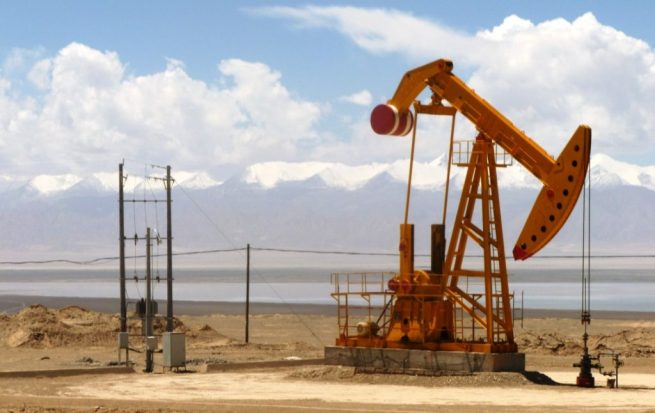Oil drilling heralds new era
Zimbabwe’s economy is headed for exciting times ahead following the recent announcement by Invictus Energy, the Australia listed resources firm that is exploring for oil and gas in the Muzarabani, that it will start drilling Zimbabwe’s first oil and gas wells within its prospective area in October next year.
Studies conducted thus far from secondary data collected by petroleum giants Mobil in the early 1990s, have shown encouraging results and tremendous potential for possible existence of oil and gas in the firm’s specials grant area.
The Muzarabani prospect has ticked all the relevant boxes to warrant millions of US dollar investment into drilling for oil or gas. Thus far, US$3.5 million has been invested in preliminary work and processing of secondary data, but the actual sinking of the first oil and gas wells in the country will cost upwards of US$15 million.
Officials, including managing director Mr Scot MacMillan, said the company was already mobilising heavy duty equipment used for oil and gas from the region ahead of commencement of drilling within the next 12 months.
In between, the company will conduct further on-site investigations, specifically geophysics (seismic studies) to narrow down on the most accurate sites for drilling two wells to test the possible existence of oil and gas in Muzarabani.
On the back of strong evidence gleaned from the investigations and studies that have been conducted, the Government is now tying the loose ends to a production sharing agreement with Geo Associates, the Zimbabwean registered firm that controls Invictus. A draft agreement should be ready in the next few weeks.
The development was announced by Mines and Mining Development Minister Winston Chitando, when he gave an update on the oil and gas project at a media briefing last week. Expectations are that the project, in the event of discovery, could change the Zimbabwe’s economic fortunes in many ways than one.
If Zimbabwe discovers oil or gas, as is widely expected and supported by the strong evidence from studies by independent experts, the country will become energy self-sufficient (both in terms of electricity and powering vehicles). Further, commercial oil and gas discovery will create thousands of new jobs, earn theGovernment and the country billions of US dollars in export revenue, grow the economy and create new industries along the value chains of oil and gas.
Already, the local fertiliser industry has already entered into an uptake agreement.
The production sharing agreement comes as Invictus Energy Limited, the parent company of Geo Associates, made an announcement in March that an inter-ministerial committee had been formed to work on the agreement.
The committee is made up of stakeholders from the Office of the President and Cabinet, Reserve Bank of Zimbabwe (RBZ), Zimbabwe Investment and Development Agency (ZIDA) as well as permanent secretaries from the ministries of Mines and Mining Development, Energy and Power Development and Finance and Economic Development.
The Permanent Secretary in the Ministry for Finance and Economic Development Mr George Guvamatanga chairs the special committee. While authorities and officials have made great efforts to keep calm, it is abundantly clear everyone is covertly excited and highly confident about prospects of oil and gas discovery in the very short term.
“We have been seized, over the last few months, negotiating a production sharing agreement with the investors,” said Minister Chitando.
“I am pleased to say that the draft is almost in place. It will go through normal channels of Government protocol and we expect that it will be ready in the next couple of weeks,” he said.
Minister Chitando also explained the reasoning behind the agreement saying it was the route chosen for oil and gas. Government relies on royalties to get a chunk from extraction of resources such as gold, platinum, chrome and coal. But for oil and gas it will get its share through the production sharing agreement.
Invictus director, Patson Chimbodza, said the production sharing agreement was simply a contractual agreement between Geo Associates and the Government, which in the event of successful discovery, allows the contractor to recoup their costs and thereafter share proceeds of sales or product with Government.
“This is standard practice globally in the oil and gas industry that is why we see the likes of the Middle East, where investors have enough money to through around and because of a number of oil and gas companies operating in these countries, do production sharing agreements with the host countries,” Mr Chimbodza said.
The Muzarabani oil and gas prospect is primed to change the face of Zimbabwe’s energy sector and the entire economy in general when actual production kicks in, which should be only a few months or years from discovery.
Two fully developed test wells are expected to be in place in 2021 to give a conclusive and bankable result sheet for the Muzarabani prospect. Studies have, however, shown the prospective area to be more gas than oil prone, but with growing demand, value and use of gas, successful discovery of either product will make little difference.
It is the same work that has resulted in the excitement that Invictus/Geo-Associates could produce a commercially viable venture.
If successful, oil and gas will join other minerals such as gold, platinum, chrome, coal and others which account for a huge chunk of the country’s economy. The development will further galvanise the appetite for oil and gas exploration in Zimbabwe, with a total of five basins listed as having huge potential for the resources.
Given the seriousness with which the new administration is treating programmes to turn around the economy, Invictus were given a tight schedule and conditions to ensure deliverables within the shortest possible time.
And together with Government the parties quickly put in place all necessary support frameworks for oil and gas exploration, extraction and exploitation, including trading and marketing, which culminated in the amendment to the Petroleum Act while processes are at advanced stages to put in place a hydro-carbons policy.
A company has also been formed, One Gas Resources, to allow the participation of locals in the Muzarabani project and the company, which is free carried by Geo-Associates up to production level, holds 20 percent stake. While Invictus will focus on upstream activities that entail exploration and production of oil and gas, One Gas will concentrate on processing the products and value addition, including frameworks for product evacuation from site.
To further underpin the case for investment in the multi-trillion cubic feet and multi-billion-barrel gas and oil Muzarabani, Geo-Associates and Invictus have already signed off-take agreements with local firms, including Sable Chemicals, which needs the gas for fertilizer production and Tatanga Energy, for power.
Mr Chimbodza said the benefits of using conventional natural gas (CNG), such as what is believed to be hosted in Muzarabani is huge amounts, were much higher than other fuels considering it is cheaper, climate friendly, saves the country forex and still serve similar if nor more purposes than any of coal and oil.–herald.co.zw








